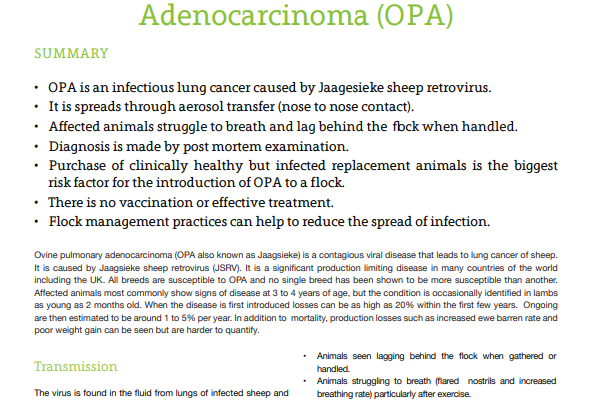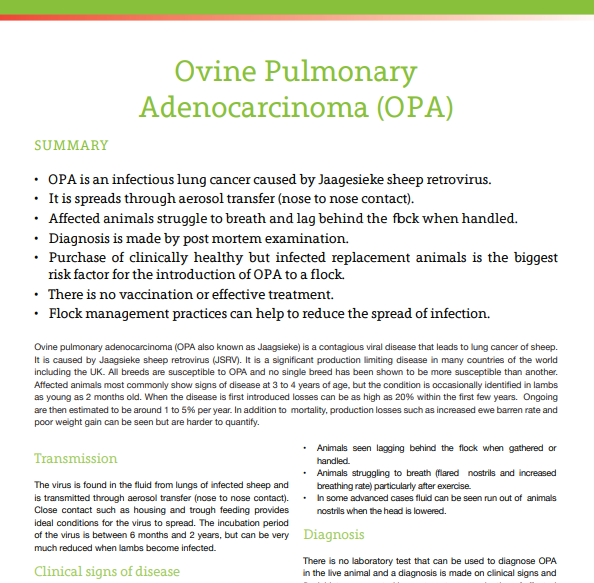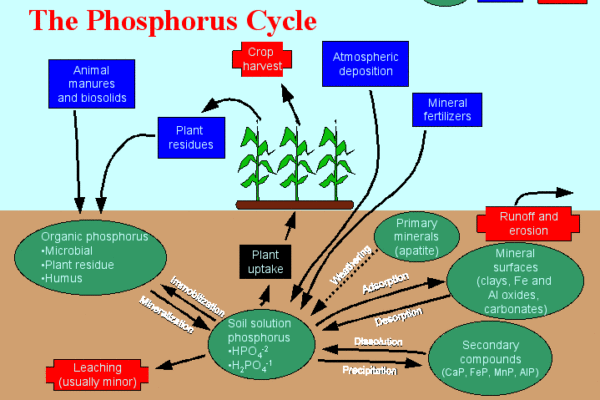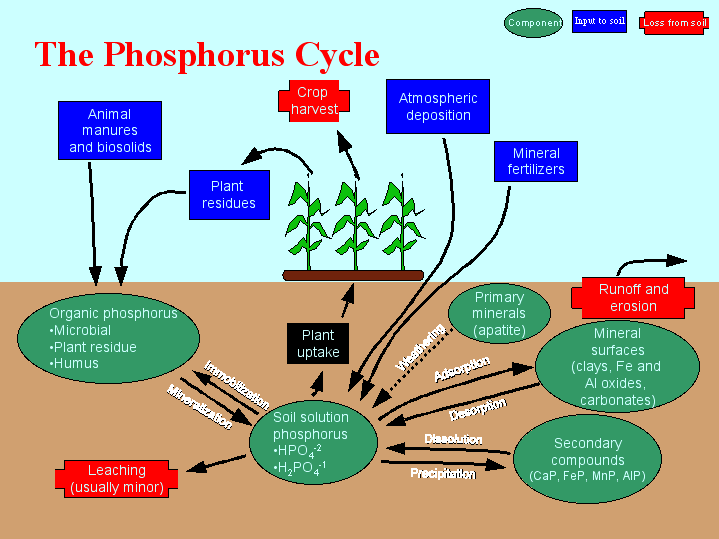Livestock
What Can Be Done About OPA/Jaagsiekte?
OPA (Ovine Pulmonary Adenocarcinoma) also known as Jaagsiekte is a tumour within the lungs of sheep caused by a virus. Infected sheep are typically thin, lag behind the rest of the group when gathered and often struggle to breathe.
Read More >Benefits of Analysing Your Silage ASAP
Analysing your silage, both pit and bales, five to six weeks after it has been made can be extremely valuable. It can tell you the following:
Read More >What problems are cropping up regularly in the vet labs?
Investigation of sheep abortion kept the labs busy during spring. With lambing over for many people the top three diagnoses were EAE – 79, Toxoplasmosis – 62 and Campylobacter – 34. EAE and Toxoplasmosis take the top two places year after year bringing home how many lambs could be saved if ewes were vaccinated.
Read More >The future uses of UAV in agriculture
The news recently has had numerous articles of the use (and mis-use) of UAV (unmanned aerial vehicles). Commonly referred to as ‘drones’, UAV are now used in many industries, as well as increasingly used out of simple interest or for recreation activities. Land management is no different, and UAV are now used in many applications, with the potential for much more use in the future.
Read More >Make the most of grass by managing your worm control programme
Plan ahead before turnout to ensure you’re on top of parasite control, as high worm burdens can significantly affect growth rates.
Read More >Technical note (TN669): Ovine pulmonary adenocarcinoma (OPA)
Ovine pulmonary adenocarcinoma (OPA also known as Jaagsieke) is a contagious viral disease that leads to lung cancer of sheep. It is caused by Jaagsieke sheep retrovirus (JSRV). It is a significant production limiting disease in many countries of the world including the UK. All breeds are susceptible to OPA and no single breed has been shown to be more susceptible than another.
Read More >Technical Note (TN669): Ovine Pulmonary Adenocarcinoma (OPA)
Ovine pulmonary adenocarcinoma (OPA also known as Jaagsieke) is a contagious viral disease that leads to lung cancer of sheep. It is caused by Jaagsieke sheep retrovirus (JSRV). It is a significant production limiting disease in many countries of the world including the UK. All breeds are susceptible to OPA and no single breed has been shown to be more susceptible than another.
Read More >Technical note (TN668): Managing soil phosphorus
Efficient soil P management is challenging due to the varying ability of soils to mediate and regulate plant available forms of P. Farmers and land managers in Scotland are now able to access farm level information about their soils making it possible to provide more accurate P management advice.
Read More >Sheep update
The number of diagnoses of parasitic gastroenteritis (i.e. worms) made during December was 70% higher than any of the previous three years. The mild November may have had a part to play as could the high levels of cobalt and selenium deficiency found during the autumn
Read More >Cryptosporidium in cattle, are things getting better or worse?
Cryptosporidium is one of the major causes of scour in young calves. It accounts for approximately half of the neonatal diarrhoea cases investigated by SAC C VS. The peak of cases occurs in May, coinciding with susceptible spring-born calves.
Read More >



